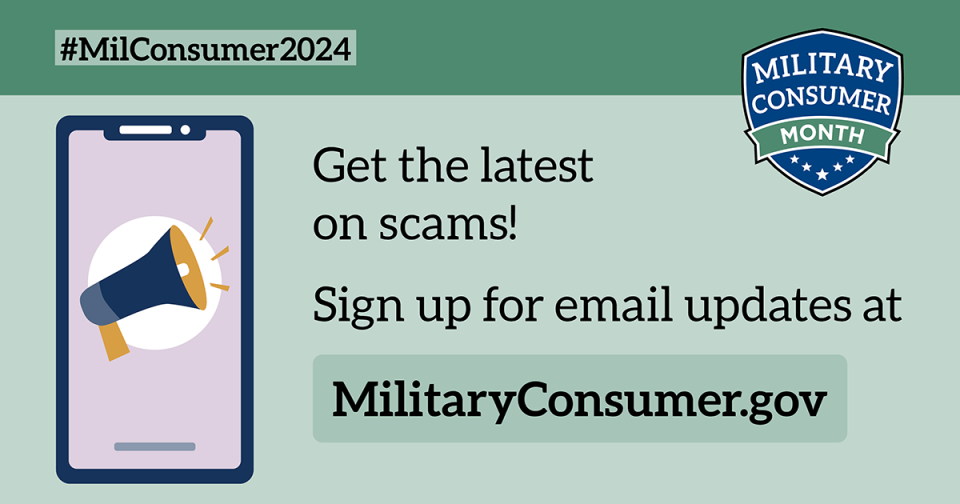July is Military Consumer Month, so we’re deploying advice you can use. No matter what stage of military life you’re going through, you could encounter an imposter scam: someone pretending to be your bank’s fraud department, the government, a relative in distress, a well-known business, or a technical support expert. Want to protect yourself and the people you care about? Let the FTC help.
Scammers tell different stories to steal your money or your personal information. Staying current on how scammers operate can help you stay a step ahead of them. Here’s some BLUF (bottom line up front) advice to start: Got an unexpected call from your bank saying there’s suspicious activity on your account? Check it out first — it could be a scammer. Did a “recruiter” message you on a job site about a high paying, work from home job? Look it up before you apply — it might be a hijacked job posting. Found a great deal on an apartment through a social media page? Do your research before you pay a deposit. Scammers often post made-up rental listings for places that aren’t actually available to rent. Learn more at ftc.gov/imposters.
During the month, we’ll post more consumer know-how. Share it with your family, friends, and buddies. Tell them to follow Military Consumer on Facebook and Twitter to be part of the conversation. To keep up with what’s happening related to scams, sign up for email updates at MilitaryConsumer.gov.


Yes, One of my friends was offered a job after leaving the military. They asked for a copy of his DD-214. Bad idea !!! This document has all your personal information including your social security number. He found out that the job was fake and his identity was stolen. Always look up the information and research it before you give money or submit personal info. Poor guy.